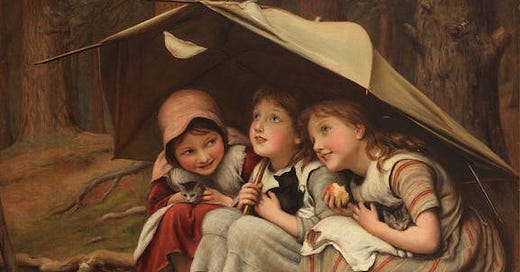Some of our most common words come from we don’t know where, though we might make a wild guess now and then — boy, dog, and today’s word, hope. I’d say that so long as a boy’s got his dog, he and the dog have hope, but what would that mean? Maybe that they can catch something good to eat, or find their way back home, or do a number on the robber who’s…
Keep reading with a 7-day free trial
Subscribe to Word & Song by Anthony Esolen to keep reading this post and get 7 days of free access to the full post archives.



